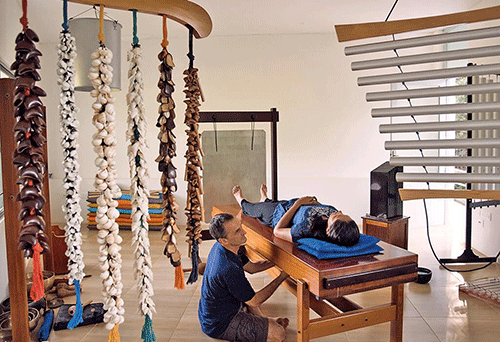The Arts Performance Centre (APC) based in Tsumeb is actively involved in developing music, art and dancing among Namibian children and youth as a passion.
The centre recently implemented a new subject – music therapy – the first of its kind in Namibia.
Music therapy is the clinical use of music to accomplish individualised goals such as reducing stress and improving mood and self-expression.
It may help psychologically, emotionally, physically, spiritually and socially.
This type of therapy can benefit military service members and veterans to cope with trauma. It has been proven that people with Autism Spectrum Disorder (ASD) learn best when there is familiarity, structure, predictability and consistency.
Music therapy may help individuals with Alzheimer’s disease with memory, and stimulate their mind because of familiarity and feelings of security.
People in correctional settings, mental health facilities and foster care homes may find music therapy to help with problem-solving, communication skills, relaxation and decreasing impulsivity.
Victims of trauma who might have anxiety, stress and pain may find music therapy helpful in decreasing those three experiences, while improving their mood, increasing feelings of confidence and control, and providing a non-verbal outlet for emotions.
Individuals with mental health disorders could find mental therapy useful to communicate and express themselves better, help them explore their thoughts and feelings, improve their mood and concentration, and develop coping skills.
Music therapy can also help decrease pain, anxiety, fatigue and depression for people with chronic pain.
It may likewise be beneficial to substance abusers, as research has shown that music therapy can increase motivation and self-esteem, reduce muscle tension, decrease anxiety, improve self-awareness and strengthen coping skills.
During music therapy, the patient and therapist will do one or more of the following:
The patient will lie on a sound bed
The music therapist will conduct some music on the sound bed
Additional musicians will play calming classical instruments in the background.
After the music therapy, the music therapist will evaluate the effectiveness of the music therapy session, and determine if the patient’s goals were met. One may choose to participate in multiple sessions.
* For further information, visit the APC website: www.apc-namibia.com


